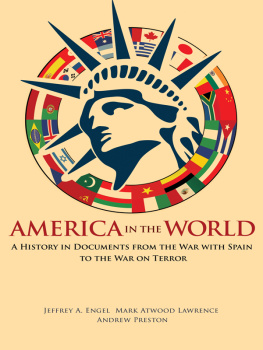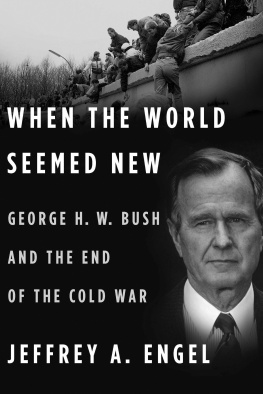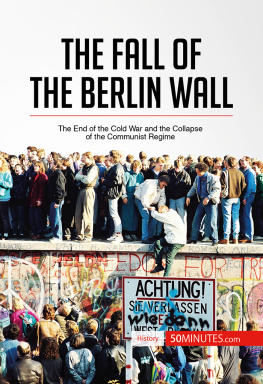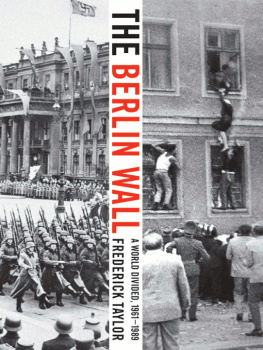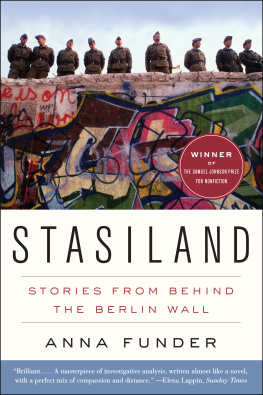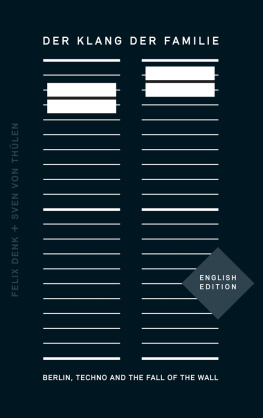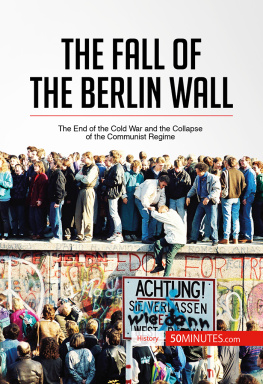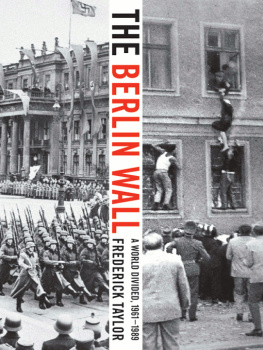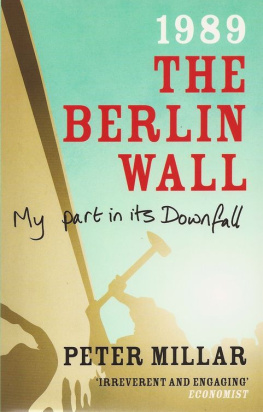

With its eminent scholars and world-renowned library and archives, the Hoover Institution seeks to improve the human condition by advancing ideas that promote economic opportunity and prosperity, while securing and safeguarding peace for America and all mankind. The views expressed in its publications are entirely those of the authors and do not necessarily reflect the views of the staff, officers, or Board of Overseers of the Hoover Institution.
www.hoover.org
Hoover Institution Press Publication No. 474
Hoover Institution at Leland Stanford Junior University,
Stanford, California 94305-6003
Copyright 2000 by the Board of Trustees of the Leland Stanford Junior University
All rights reserved. No part of this publication may be reproduced, stored in a retrieval system, or transmitted in any form or by any means, electronic, mechanical, photocopying, recording, or otherwise, without written permission of the publisher and copyright holders.
For permission to reuse material from The Fall of the Berlin Wall, ISBN 978-0-8179-9822-6, please access www.copyright.com or contact the Copyright Clearance Center, Inc. (CCC), 222 Rosewood Drive, Danvers, MA 01923, 978-750-8400. CCC is a not-for-profit organization that provides licenses and registration for a variety of uses.
First printing 2000
25 24 23 22 21 20 19 10 9 8 7 6 5 4
Library of Congress Cataloging-in-Publication Data
The fall of the Berlin Wall : reassessing the causes and consequences of the end of the Cold War / edited by Peter Schweizer.
p. cm.
Papers presented at a symposium held Feb. 22, 1999, in Washington, D.C.
Includes bibliographical references.
ISBN 0-8179-9822-5 (alk. paper)
1. World politics19851995Congresses. 2. Cold WarCongresses. 3. Berlin Wall, Berlin, Germany, 19611989Congresses. 4. United StatesForeign relations19811989Congresses. 5. United StatesForeign relationsSoviet UnionCongresses. 6. Soviet UnionForeign relationsUnited StatesCongresses. 7. Reagan, RonaldCongresses. I. Schweizer, Peter, 1964D849.F35 2000
327.73047dc21 | 99-0489747 |
CIP |
ISBN 978-0-8179-9822-6 (pbk. : alk. paper)
ISBN 978-0-8179-9826-4 (epub)
ISBN 978-0-8179-9827-1 (mobi)
ISBN 978-0-8179-9828-8 (PDF)
CONTENTS
FOREWORD
THIS YEAR marks the tenth anniversary of the fall of the Berlin Wall, perhaps the most potent symbol of the Cold War.
To commemorate that historic event, and to further understand the U.S. policies and actions that preceded it, the Hoover Institution cosponsored a symposium entitled The Fall of the Berlin Wall: Reassessing the Causes and Consequences of the End of the Cold War with the William J. Casey Institute of the Center for Security Policy. The symposium brought together several individuals who played pivotal roles in shaping American Cold War policy during the 1980s. Some of the participants not only served in the Reagan administration but have a long association with the Hoover Institution and the Center for Security Policy.
Comments by the participants provided an important window on American foreign policymaking during the Reagan years. They also offered valuable insights into how we might meet the national security challenges of tomorrow. And it is with that in mind that we have published them in this collection.
We want to thank Peter Schweizer for his outstanding work in assembling and editing this collection. We are also pleased to acknowledge the organizers of the symposium: Charles Palm, deputy director of the Hoover Institution, and Rinelda Bliss, chief of staff at the Center for Security Policy. Without their contributions, the event would not have been nearly as successful as it was. Preparation of this volume took place with the very able assistance of Pat Baker, executive editor of the Hoover Press.
We call to your attention two other related Hoover volumes: Collapse of Communism (Hoover Press, 1999), a collection of scholarly essays, edited by Lee Edwards, analyzing communism in the twentieth century; and CNNs Cold War Documentary: Issues and Controversy (Hoover Press, 1999), a collection of critical articles, edited by Arnold Beichman, assessing CNNs Cold War documentary television program and book, which generated significant controversy among some historians of the Cold War period.
John Raisian | Roger W. Robinson Jr. |
Director | Chair |
Hoover Institution
Stanford University | William J. Casey Institute of the Center for Security Policy |
INTRODUCTION
Peter Schweizer
ON MONDAY , February 22, 1999, a symposium was convened at the Willard Inter-Continental Hotel in Washington to examine in detail the policies and people assembled by President Reagan that materially contributed to the end of the Cold War.
Before an audience of over 300 former Reagan administration officials and other policy-practitionersincluding former Cabinet officers and senior military officers, scholars, industry leaders, and members of the pressseveral of the key architects of Reagan foreign policy offered insights into the roots of a strategy that worked to undermine Soviet power. Among the participants were: the Honorable Richard V. Allen, who served as Candidate Reagans chief foreign policy adviser and went on to serve as President Reagans first National Security Adviser; the Honorable William P. Clark, President Reagans second National Security Adviser, former Deputy Secretary of State, and former Secretary of the Interior; the Honorable Edwin Meese III, former Counselor to the President and Attorney General under President Reagan; Dr. Fred Ikl, Under Secretary of Defense for Policy during the Reagan administration; Frank F. Gaffney Jr., President of the Center for Security Policy and former Acting Assistant Secretary of Defense during the Reagan administration; and the Honorable Roger W. Robinson Jr., former Senior Director of International Economic Affairs in the Reagan National Security Council.
The symposium was preceded by an elegant luncheon at which the family of the late William J. Casey presented Mr. Caseys papers to the Hoover Institution Archives. The luncheon featured introductory remarks by Herbert Hoover III, Chairman of the Board of Overseers at the Hoover Institution, Mr. Meese, and Mr. Caseys daughter, Bernadette Casey Smith. Following a moving tribute to her father, Mrs. Smith was joined by her mother, Mrs. Sophia Casey, in formally turning over Mr. Caseys personal papers to the Hoover archives.
The Casey papers constitute a particularly rich collection, documenting half a century of key events in American history. The collection will become a permanent part of the Hoover Institution Archives.
Following the luncheon, panelists convened to discuss what role Reagan administration policies may have played in the collapse of the Soviet Union. Discussion was based on an introductory essay written by Hoover Fellow Peter Schweizer (reprinted below). The event was moderated by Roger Robinson, formerly with the Reagan National Security Council and the current holder of the William J. Casey Institutes William J. Casey Chair. Robinson outlined the symposiums objectives, notably to dispel the myths seemingly intended to diminish President Reagans principled, moral leadership as well as that of those who served with him in the trenches of the Cold War.





